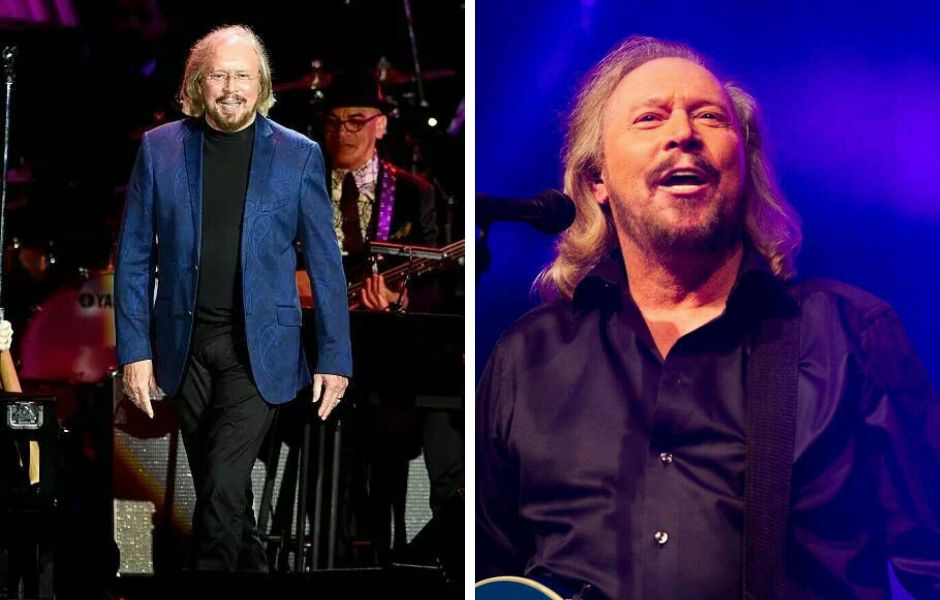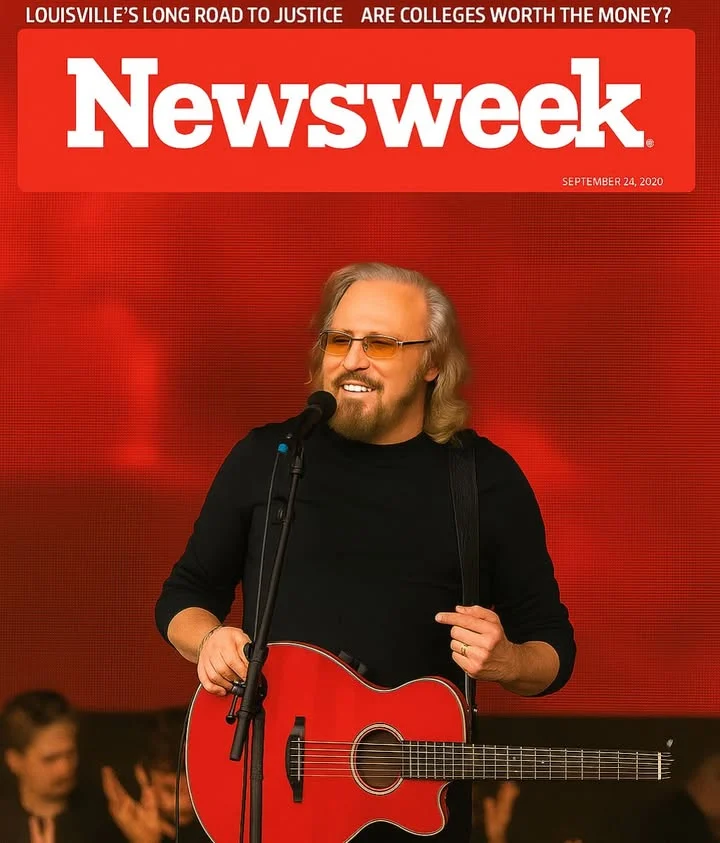
Barry Gibb’s Enduring Flame A Life Beyond the Spotlight
When TIME Magazine named Barry Gibb a “Living Legend,” it was far more than a prestigious title. It was an emotional acknowledgment not just of success, but of survival — the rare brilliance of a man whose music carries the weight of generations. This wasn’t the quick burn of fleeting fame; it was the steady glow of an artist whose songs have become part of the fabric of modern memory.
Over six decades have passed since the three brothers from Manchester first found their voices locked in harmony in a modest living room. Today, Barry—the last surviving Bee Gee—remains a towering figure whose silky falsetto is recognizable across continents and across age groups. Yet, as fans know all too well, his enduring legacy owes as much to the life beneath the melodies as to the melodies themselves.
A Storyteller at Heart
Barry Gibb was never merely a vocalist; he was a chronicler of human emotion. From the heartache that pulses beneath “To Love Somebody” to the tender devotion woven through “How Deep Is Your Love” and the relentless, infectious heartbeat of “Stayin’ Alive,” his songs are not just tunes—they are emotional events, intimate chapters written in sound.
Barry once said, “Each song we wrote was a piece of our lives. I didn’t just want people to dance—I wanted them to feel.” And feel they did. These were not empty disco anthems or pop hits designed for the moment but timeless stories of love, loss, and longing carved into the collective soul of music lovers.
Resilience After Silence
Perhaps the most poignant thread in Barry’s tapestry is how he faced the unimaginable loss of his brothers Maurice and Robin. Most would have crumbled under such weight, yet Barry’s response was anything but withdrawal. “When I sing,” he confessed, “I hear them. I feel them beside me.” This quiet communion transformed the stage into a place where voices never truly fade but live on, not as ghosts but as eternal presences.
It is this unbreakable harmony, the unseen thread of family and faith, that gives his story its deepest strength. Where others see closure, Barry’s journey reads like a continuum — a never-ending song that bridges past and present.
A Bridge Between Eras
In a music world prone to reinvention and trend-chasing, Barry Gibb stands as a beacon of authenticity. His music defies eras because it was never constructed for a moment in time—it was built for forever. Critics and fans alike have recognized him as more than an icon. Newsweek called his voice “the heartbeat of the 20th century,” echoing still into our fragmented world.
To witness Barry live is to feel something almost spiritual. No need for pyrotechnics or spectacle—just the man, his guitar, and a voice carrying the full weight of history. Those lucky enough to see him perform describe it as a communion, an experience that is less a concert and more a shared memory stretching back decades. He doesn’t perform songs; he resurrects moments of laughter, loss, love, and resilience.
The Quiet Fire
Beyond the flashing headlines and sold-out arenas, Barry remains grounded by an enduring humility. His devotion to family, his faith, and his fans reflects a man who understands that true greatness comes not from fame, but from feeling. In an age obsessed with reinvention, Barry’s authenticity is the rarest brilliance.
He never chased the future. Instead, he created it. The flame he ignited alongside his brothers wasn’t just about music—it was about connection, healing, and the profound belief that love deserves its own melody. And as the lights dim and Barry walks on stage, guitar in hand, the world collectively holds its breath. The first chord strikes, and suddenly time slows.
It’s no longer about eras or trends. It’s about sound turned into soul, and memory stretched into eternity.
Some legacies fade like whispers. Barry Gibb’s burns like a beacon, lighting the way for anyone who understands that music is, above all else, a story worth telling.
